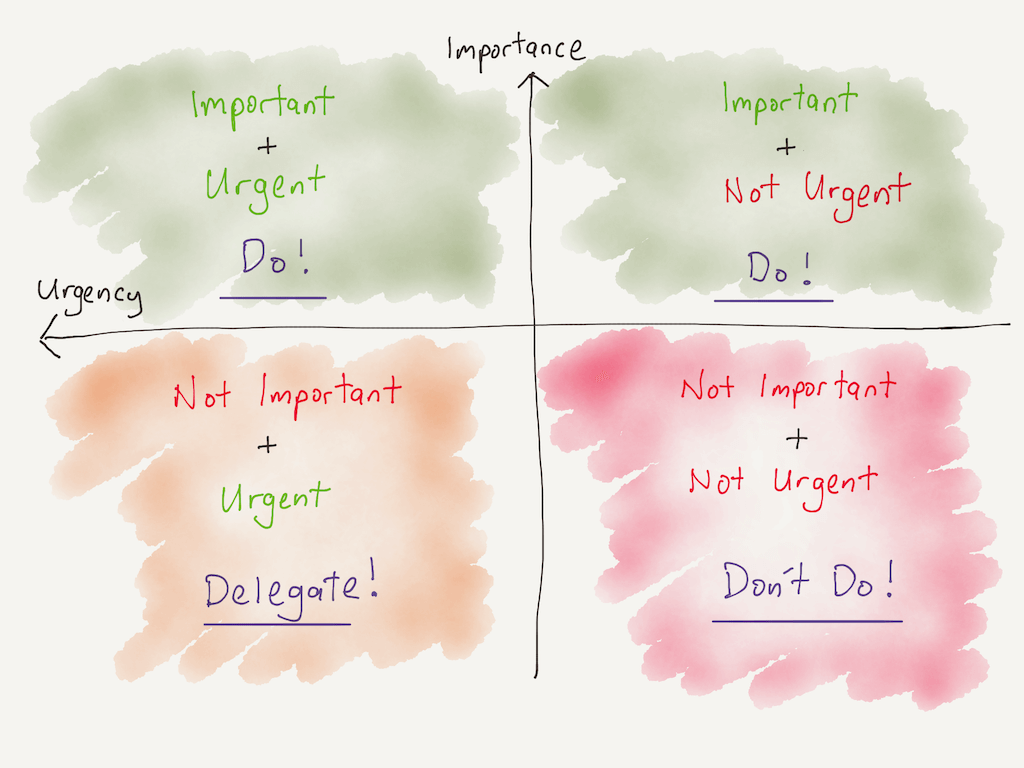1. Intro
Goal: manage startup between 2-150 people, responsible for other people’s output
Limit: time and experience
Solution:
- find the smallest possible set of techniques to be a manager
- First principle
2. What is Manager’s Job
Goal: increase the output of the team, the single principle
Limit: the activities of a manager is complicated, and not directly map to business value
How to measure the value of a manager? (Rather than an individual contributor)
- increase the output
- maximize the value of employee
What to learn? Techniques that can help to achieve this goal
Exercise: every week, sit down and ask have I increased or decreased the output
3. How to Delegate Without Micro-Management
Individual contributor who are effective tend to dislike giving up tasks they are good at.
BAD: Manager should not use superior knowledge to take control of task
- Would result subordinates’ unhappiness
- Team’s output is reduced (Never act by self)
HOW TO AVOID:
- Share the common understanding between delegator and delegatee
- Training others (this is manager’s job)
Check the output: Responsible for the output of your team
- check at the lowest value stage of production
- check often at the beginning, and then taper off as the feature reaches completion.
What to delegate?
- things you already know how to do
- if not, ask a plan from subordinate, check the thinking
4. How to Train Without Becoming a Bottleneck
Just like Super-Mario, introduce the part and mechanics
- Introduce one idea one time
- code base, language, repo, tool, deploy
- Give little task, follow the instruction and call me ever stuck
- A following harder task
- Try to create a training program for new hire
- Systemastsing
- Won’t miss crucial part
- Allows to scale
How to create the training program?
- Think about the task you most likely to delegate
- Break down, order it from simple to complex
- Write down as a series of task
- Testing, go back and tweak
5. How to Prioritise and Regain Your Sanity
A good manager should change the mix of activities so that do more high leverage activities

You should gather information as much as possible
- informal channels
- one-on-one meetings
- written reports
6. One-on-Ones: How to Prevent Blowups From Happening
Powerful tool to catch problem that might have huge impact in the future
One-on-One origin: Intel
Goal: Mutual teaching and exchange of information
Principle:
- Information transfer
- Build context and trust
Frequency? 2 week / 1 month / 1 quarter
How?
- Share information
- Talk about personal life
- Professional development
Result:
- Normal update
- Rant $\to$ listen, mirror the problem / label the pain
- Explosion
7. Where to Go From Here
Practice